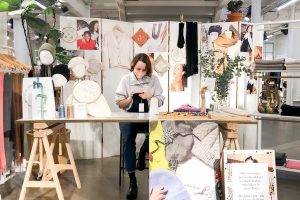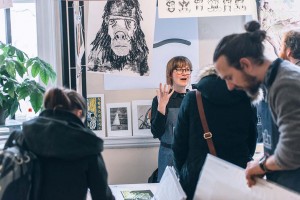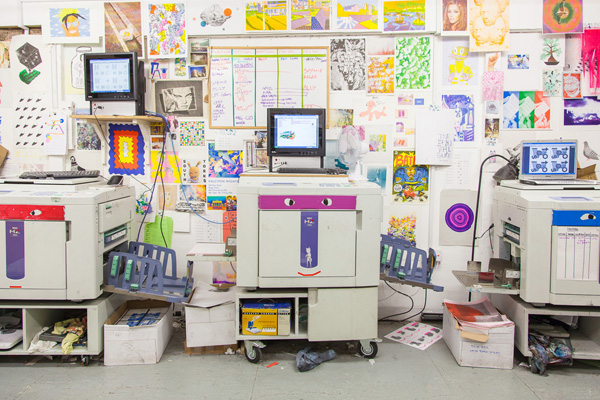Support our Maker Movement!
Just Got Made • 02 May 2019Support our Makers! I say on a regular basis. Why do I care about it? Here’s something I wrote to explain the problem we face as small makers…
What would happen if we harnessed technology to approach manufacturing in a dynamic, flexible and human way? If everyone could learn the skills to turn an idea into a product, what new solutions would we see emerging to benefit our society? If you could go behind the scenes of a factory, what would you learn?
The way the design community approach manufacturing has changed – no longer about factories and mass production – we are looking for ever more ways to make products personal, unique and changeable.
Retail understands the new consumer desire for something special, giving customers ever more access to the small, the personal. Yet the amount of support we give to small makers themselves is marginal
Online there is currently no accessible, comprehensive online directory for UK manufacturing across silo-ed areas of making. Our existing databases for sourcing a manufacturer are in the main expensive, heavily guarded and do not include many of the smaller, more modern manufacturers. Specialist groups have sprung up to build wider directories and networks but these are prone to peter out after a couple of years.
Universities are looking the other way, ignoring the practical needs of their students after graduation.
Offline, Makespaces which are applauded as the key to building new maker networks are in reality struggling to do so. There are only 98 makespaces in the country and only a handful of these outside urban hubs. In reality they are engaging very with very few people, the majority being an elite of highly trained design and engineering professionals or enthusiastic hobbyists. This is not representative the vast majority of the Maker Movement operating today. In fact, over 90% of creative entrepreneurs in fact work from home, and a majority are in rural communities – where they are unable to access training and take part in the communities meeting to share and exchange information that these makespaces offer. Not surprisingly, in the same survey, 92% reported feeling isolated (Movers and Shakers report, Microsoft).
We do not feel there is currently a clear way for the majority of makers and designers to access and engage with modern manufacturing, even though we have existing technology that could be reaching people in their own homes to tackle the problems of skills gaps, the siloing of information and even isolation if we build communities around it?
What is the outcome for our maker population? In reality many are avoiding manufacturing altogether, giving up, not getting started or focusing on more easily accessible craft based activities.
Firstly, if our creative workforce are disengaging with manufacturing, how many opportunities for amazing products have we missed?
How many groups outside that makespace elite are not getting their ideas to market? Stifling of creative potential is bad news on an individual and population wide scale.
Secondly, this has a fundamental impact on their ability to scale and grow their business and contributes to low average earnings – women with arts degrees earn on average £12,000 annually, and men with the same training £17,000. Combined with the Maker Movement’s high levels of self employment, and we see a precarious living condition with financial vulnerability (for maternity or sick leave for example) and a decrease in being able to save for the future.
Thirdly, the Just Got Made team believe that by ignoring this situation we are actively contributing to a gender divide and holding women back in the workforce. 85% of the maker movement are female (RSA), but despite this women in particular are under-served in this new work environment and are not accessing and benefiting from existing support. Women are underrepresented in our creative makespaces, coworking and technology hubs, and earn almost a third less than men with the same training. It’s clear we are currently marginalising the majority and need to create solutions for everyone. We suggest that this should be strongly focused on the needs of women (the majority) and start giving a female narrative to making and manufacturing.
Is this really a large-scale, important problem?
Yes. Our self-employed creative workforce has grown by 900,000 over the past decade, and is predicted to continue to increase at a more rapid rate during the next decade.
It seems clear we need to grow a flexible network that reflects the needs of modern makers: human, affordable, simple to use and easy to access from any part of the country. Alongside side this we need to provide access and training, so that our Maker workforce has the relevant skills to engage with it. And we need to make this work for women in particular.





